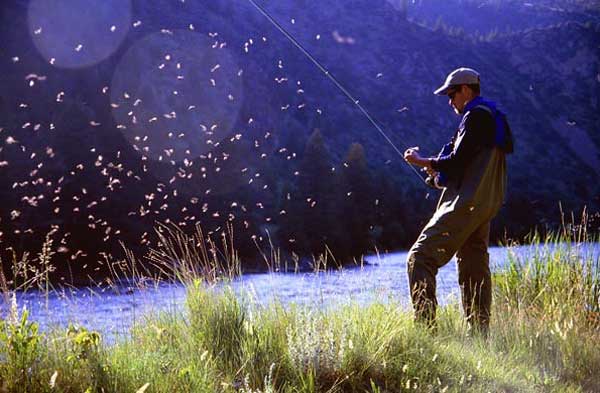by Tony Orman
Nineteen scientists from European countries such as Germany and Netherlands, USA, South Africa, Australia, Philippines and Brazil have given a strong warning about dramatic declines of insects.
The warning in February 2020 and published in “Biological Conservation” seemed to get little publicity despite the scientists deep concerted concern.
“We need immediate action.The current extinction crisis is deeply worrisome. Yet, what we know is only the tip of the iceberg.”
Despite the known threats and consequences of insect extinction, decision-makers and civil society are only now becoming aware of the scale of the problem. Conservation efforts have largely been focused on charismatic megafauna, especially birds and mammals, with little thought on ecosystem connectivity.
“ Even within insects, some taxa have been favoured, such as butterflies and, more recently, pollinators.”
Legislation and agreements in the US (Endangered Species Act) and Europe clearly reflect such biases.
“Partly to blame for these biases is a lack of capacity and data, which, in the view of policymakers, leads to a lack of funding, which in turn, feeds back into lack of capacity and data, in a continuous cycle”.
Solutions!
Solutions include the removal of the root causes of the problem, the indirect drivers, as essential components of a transformative change of our economy and society.
“Many solutions are now available to support insect populations at sustainable levels, especially through preserving and recovering natural habitats, eliminating deleterious agricultural practices including harmful pesticides, implementing measures for avoiding or eliminating the negative impacts of invasive species, taking aggressive steps to reduce greenhouse gas emissions, and curbing the deleterious effects of overexploitation of many taxa.”
Multiple countries are already adopting concrete measures for averting further insect population depletions. As an example, many European countries are banning or phasing-out glyphosate-based weed killers.
“Solutions are now available – we must act upon them,” said the scientists.
Footnote: The link is “Scientists’ warning to humanity on insect extinctions”: https://www.sciencedirect.com/science/article/pii/S0006320719317823

A Caddis fly hatch in the USA. Insect hatches on New Zealand trout streams have shown dramatic declines according to
anecdotal reports. People comment on the lack of moths and insects in car headlights at night and around street lights and homes after dark
compared to past decades. Even blowflies are noticeably fewer..

I travelled through the Aorangi State Forest the other day, from Te Kopi to Waikuku – about 25kms.
During the whole of my travels, I did not see nor hear a single bird.
In the Huripi Stream, I counted a few dragonflies and later on a solitary bumblebee, and just in one solitary sheltered spot, a deafening chorus of cicadas was the only indication of life during my whole trip.
The truly sad side of 1080 – let alone what glyphosate is doing to both our agricultural areas and of course our world-beating cancer levels
Is the insect decline purely in the Western World, with the likes of Monsanto foisting their poisons on everyone?
If so, then it is likely the west that will perish, but places such as South America, Africa, India and China would be mostly unaffected. Even central Australia would seem to be unlikely to succumb.
So just where is the exact problem likely to eventuate? Or is this truly global?
Will non-OECD Countries eventually prevail?
Diazinon widely used for grass grub is ‘lethal to aquatic life”. It might kill target grass grub species but how many other insect species – good insects- does it kill?
I note the scientists spoke out early last year. Who took any notice? What is Ministry for the Environment up to? ECAN, DOC, Fish and Game, government? They just move on along their short-sighted destructive path.
Well done CORANZ for giving the scientists’ concerns and warning some oxygen.
This all reflects the tendency to prefer short run profits to long run necessities.
Irresponsible by governments both MPs and ministries and departments.
What a legacy to leave tomorrow’s generations!
As the world is going through a great reset we all have to wake up and have more sustainability. . Not only the chemicals are doing harm but alloy increase in our soils as well. Not to mention the Electromatic interference from cell phones. Soon this will be beamed down from out space from satellites. But then I am a conspirator, aren’t I?
I think 1080 Poison will be a big factor in the killing of insects, they eat the bait, they feed on the carcasses of animals and birds killed by 1080, and then you have secondary poisoning.
In Asia and even the Pacific Islands they spray all the time for insects for mozzies etc but guess all insects are killed it is not discriminate.
People spray around their houses all the time, I know I am guilty of it but try to minimise it once I get overrun by cockroaches. I know a neighbor years ago sprayed their house and I kept finding dead insects everywhere so how far does it spread.
I dont use sprays in my garden and have a lot of insects, we do use Round up but try and apply it carefully and with a nozzle to stop drift, I think it all helps but you have to wonder at the huge spraying contractors how far the spray carry’s. Where have all the insects gone that used to splat on our car windows when driving at night